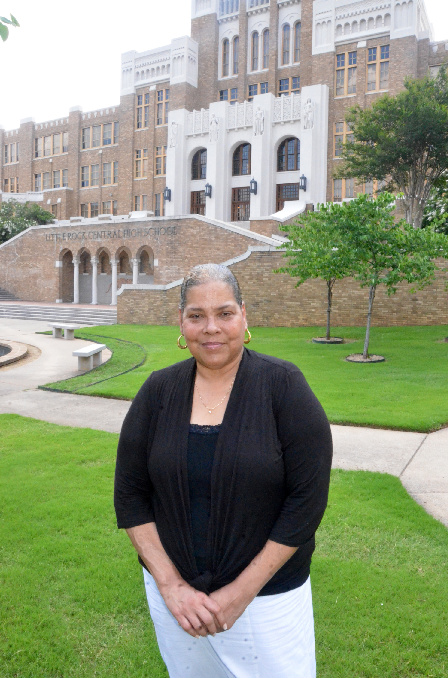Brawner: Central High Grad Becomes School Choice Advocate
by June 27, 2013 7:26 pm 100 views
The one thing that nobody ever mentions when they talk about the 1957 integration of Little Rock Central High School is the way the building looks from the outside. It’s beautiful but imposing, like a castle without a moat.
Standing outside it recently, Virginia Walden Ford remembers the dread she felt approaching it every day.
“You can imagine what a 14-year-old kid would do,” she said. “I was just terrified.”
Ford is not one of the immortal Little Rock Nine who walked into the school in 1957 and walked out as icons of the civil rights movement. Instead, she’s a member of what might be called the Little Rock 135, the first large group of black students who attended school there in 1966 when the city finally got serious about integration.
She had, however, been raised in the civil rights movement. Her father, William Fowler, was the Little Rock School District’s first black assistant superintendent, she said. He was put in charge of hiring teachers, white and black, in the 1960s. Her mother, Marion Fowler, still alive at 91, was among the district’s first African-American teachers to teach at a white school. Ford remembers being in a house as a six-year-old where the Nine, her parents, and leaders of the black community were meeting before the children attended school the next day. Even at that age, she knew whatever was happening was important.
For Ford, it was tough coming from all-black Dunbar Junior High School – a nurturing environment with good teachers but limited and outdated resources. One Central teacher very deliberately separated students by race in the library, while a math teacher refused to call Ford’s name in class. The white students were predisposed to be friendly but faced pressures from the adults in their lives. “I think if we had been left alone, we would have probably done pretty well, but there were teachers who wouldn’t call on us, and it was like we were invisible,” she said.
By the time she graduated, she’d had enough of integrated schools and attended the all-black Hampton Institute in Virginia. Then she went to work in Washington, D.C.
When one of her children succeeded in a Catholic school after failing in the notoriously bad Washington, D.C., school district, she became an activist. She founded the group D.C. Parents for School Choice, testified before Congress, and began working for the conservative Heritage Foundation on education policy.
Two years ago, she returned to Arkansas and founded the Arkansas Parent Network, which serves as a resource for public school parents and as an advocate for school choice issues. It is funded by a grant from the Walton Family Foundation.
This past session, her group packed a House Education Committee room to support a bill that would have provided vouchers for students to attend public or private schools with state dollars. It didn’t pass. She also was a supporter of a Senate bill that would have given parents unlimited options of transferring their children to other districts without having to move their families there. That bill did pass, though in modified form, and became the state’s new school choice law.
These debates, and others around choice, charters and competition, dominated much of the discussion about education during this year’s legislative session. Opponents fear these kinds of reforms will harm public schools. They say unlimited school choice, for example, would lead to white flight and newly segregated schools in parts of the state.
Ford doesn’t believe significant white flight would result from more school choice, but concedes some white parents would transfer their students because of racial motivations. Still, she said, it’s worth letting some do that to give all parents more options.
“At some point, we’ve got to start looking out for the benefit of every child and just being confident that some of the racial thoughts and behaviors of the past don’t exist any longer,” she said.

